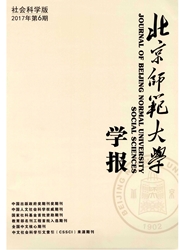

 中文摘要:
中文摘要:
凝聚力是组织管理领域的重要概念。西方文献中的凝聚力概念,大多集中在团体层次。而在中国,由于集体主义的文化传统,组织层次的凝聚力具有重要的理论和现实意义。研究发现,组织凝聚力的结构包括员工向心力、领导凝聚力、任务协作、人际和谐、利益共享、价值认同六个维度,它们从个体、团体和组织三个层次上反映了组织凝聚力;组织凝聚力的影响因素包括领导胜任力、凝聚点员工、人际关系、团队导向、物质激励、情感关怀、组织发展与目标、体制变革、社会环境,这些因素分布在个体、团体、组织和社会四个层次上。
 英文摘要:
英文摘要:
This paper develops a theoretical framework on the construct and antecedents oI orgamzational conestveness oy a case study. And tests it by two samples. One contains 130 employees,representing a sample from practical sector. The other is composed of 8 subject matter experts who have academic background. The results suggest that organizational cohesiveness has six dimensions: employee centripetalism, leader cohesiveness, task cooperation, interpersonal harmony, benefit sharing, and value commitment. They decipher organizational cohesiveness at the individual, group, and organizational levels respectively. Nine antecedents are found to influence organizatoinal cohesiveness in the Chinese cultural background. Implications for the theory are discussed, and future research directions offered.
 同期刊论文项目
同期刊论文项目
 同项目期刊论文
同项目期刊论文
 期刊信息
期刊信息
